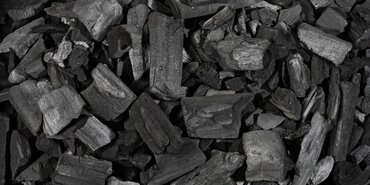TT Club wants Cleaner Environment for Quay Crane Drivers

20 May 2008
The TT Club has called for a cleaner working environment for quay crane drivers at ports, and in particular wants new measures to protect them from ship stack emissions.
The call comes following a report on ship stack emissions from Laurence Jones, Director Global Risk Assessment, at the TT Club.
In his report, Jones points out that the port employees most at risk from ship stack emissions are quay crane drivers. "Quay crane operators' cabins are normally air conditioned and designed to be air-tight or at least prevent emissions from entering, but in many cases they are not, and a good deal of ship stack exhaust could be entering the cabins", says Jones. At times crane operators can be less than three metres away from the top of a ship's stack."
The TT Club is recommending that quay crane cabins are properly risk assessed for this hazard. This should include air quality monitoring during operations, and appropriate control measures to counter any exposure to emissions. "This means ensuring cabins are air tight, have effective air conditioning units using high quality filters to prevent the entry of harmful emissions from ship's stacks", Jones explains. "This will provide a cleaner and safer environment for workers."
Regulatory authorities, shipping lines, port authorities and terminals globally have for some time been considering ways to reduce ship stack emissions in ports. There are a number of options, including 'cold ironing' (providing vessels with power from the shore whilst in port); lower-emission fuels; and even hoods over the ship's stack and to contain and collect the emission.
More detailed information on air quality issues has recently been published by the International Association of Ports and Harbors (IAPH) in 'IAPH Tool Box for Port Clean Air Programs', available free of charge on the IAPH website (
http://www.iaphworldports.org/
).
Note to Editors:
The TT Club is the international transport and logistics industry's leading provider of insurance and related risk management services. Established in 1968, the Club's membership comprises ship operators, ports and terminals, road, rail and airfreight operators, logistics companies and container lessors. As a mutual insurer, the Club exists to provide its policyholders with benefits, which include specialist underwriting expertise, a world-wide office network providing claims management services, and first class risk management and loss prevention advice.
Photo Note:
A high resolution digital image of Laurence Jones is available to download from the ISIS Communications Press Room at
or on request from
info@isicsomms.comFor further information please contact:Ian Lush, Marketing Director, TT ClubTel: +44 (0) 20 7204 2642E-mail: ian.lush@thomasmiller.comwww.ttclub.comMedia contact:Peter Owen, ISIS CommunicationsTel: +44 (0) 1737 248300E-mail: info@isiscomms.comwww.isiscomms.comDistributed by ISIS Communications A full archive of all TT Club news releases and photographs is available from the ISIS Communications Press Room at www.isiscomms.com
- Author
- Staff Author
- Date
- 19/05/2008





